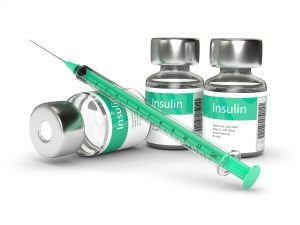A colectomy, also known as a bowel resection, is a surgical procedure where a part of or the entire colon is removed.
The colon is part of the body’s digestive system, which removes and processes nutrients from foods and helps pass waste material out of the body. A colectomy may be required when the colon fails to function as it should.
This may occur for a variety of issues or conditions including:
- Bowel obstruction – A blockage that keeps food or liquid from passing through your small or large intestine.
- Bowel perforation – A hole in the wall of the small or large intestine. This is a serious and potentially fatal condition that may require immediate surgery.
- Crohn’s disease – An inflammatory bowel disease (IBD) that causes inflammation of your digestive tract, leading to abdominal pain, diarrhea, fatigue, weight loss and malnutrition.
- Ulcerative colitis – A condition that causes irritation and swelling of the small intestine that can lead to the development of sores called ulcers.
- Colon cancer – A type of cancer where tiny growths called polyps develop in the colon or rectum over time and eventually become cancerous.
Depending on the issue and the severity, there are a number of different types of colectomy procedures, such as:
- Total colectomy–The removal of the entire colon
- Partial colectomy (or subtotal colectomy) – The removal of part of the colon
- Hemicolectomy- The removal of the right or left portion of the colon
- Proctocolectomy– The removal of both the colon and rectum
Traditionally, patients with any of these conditions needing a colectomy would have open surgery. These procedures require doctors to make a long incision in the wall of the abdomen so they can see the colon directly.
Thankfully, Flushing Hospital offers patients a much more minimally invasive option. Through the acquisition of the da Vinci surgical platform, patients can now have colectomy procedures performed robotically.
During robot-assisted procedures, Flushing Hospital’s expert team of surgeons can guide the state-of-the-art da Vinci robot to make the smallest of incisions, resulting in less pain, minimal scarring, and faster recovery time.
If you are experiencing any form of irritable bowel disease that may require surgical intervention, please call Flushing Hospital’s Division of Robotic Surgery at 718-670- 3135 to learn how we can help.
All content of this newsletter is intended for general information purposes only and is not intended or implied to be a substitute for professional medical advice, diagnosis or treatment. Please consult a medical professional before adopting any of the suggestions on this page. You must never disregard professional medical advice or delay seeking medical treatment based upon any content of this newsletter. PROMPTLY CONSULT YOUR PHYSICIAN OR CALL 911 IF YOU BELIEVE YOU HAVE A MEDICAL EMERGENCY.










